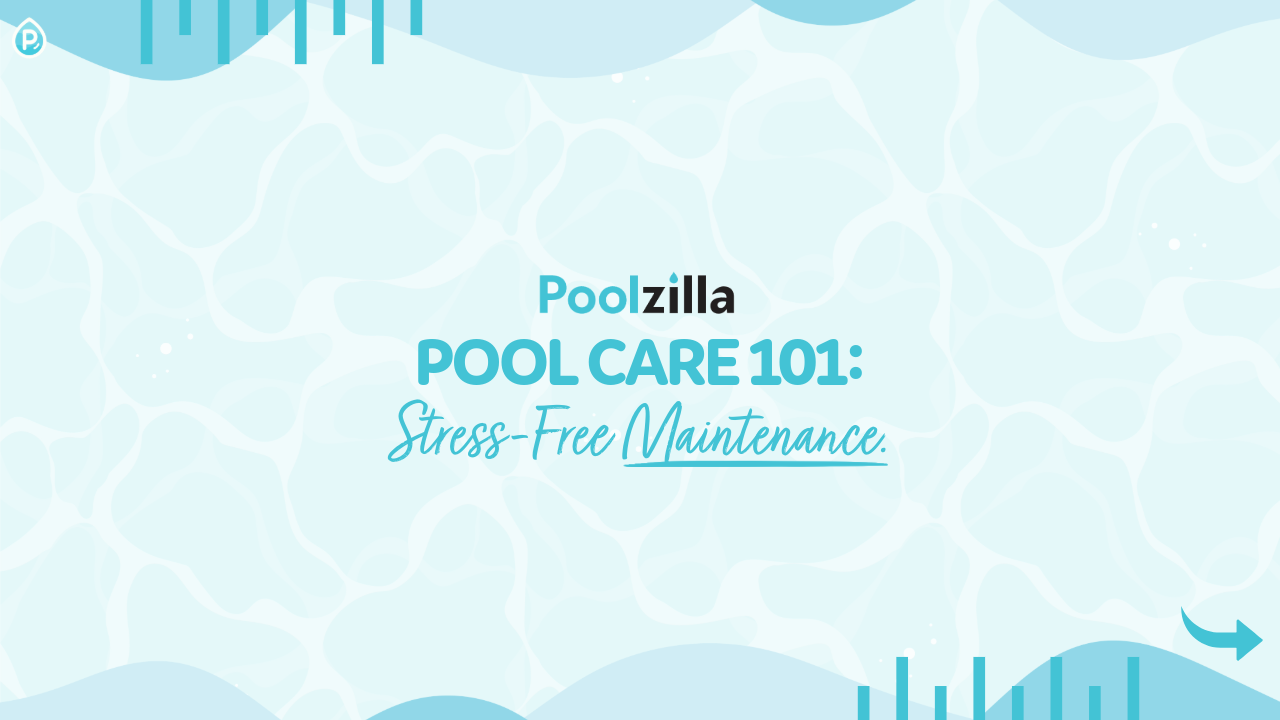Owning a pool can be one of the best parts of summer, whether you're lounging on a float, hosting a pool party, or simply enjoying a refreshing swim in the climbing temperature!
However, a dirty pool can be a daunting task. Maintaining your pool can be stress-free with the right pool care. Let’s walk you through the essentials every pool owner needs to keep their water looking great all season long.
To keep your pool safe for swimming, regular testing is essential. Weather, bather load, and even the chemicals you add can disturb the water balance which can cause problems like cloudy water, skin irritation, and algae growth.
Essential (5) Tests:
-
Chlorine: Used in pools to kill bacteria, viruses, and algae, helping to keep the water clean and safe for swimming.
-
pH: Affects the efficiency of chlorine and the comfort of swimmers, a measure of how acidic or alkaline the pool water is.
-
Alkalinity: Assists the water's ability to resist changes in pH, helps to stabilize pH levels.
-
Calcium: Too little calcium can cause corrosive water, while too much can lead to scaling on pool surfaces.
-
CYA: Think of it as the pool umbrella, which protects chlorine from being broken down by sunlight, reducing the need for frequent additions.
Test your pool water at least once a week. Based on your results, adjust your chemicals as needed to maintain the ideal water balance.
Ideal Balance:
The ideal balance depends entirely on your pool environment– things like the amount of sunlight your pool receives, debris entering the water, bather load, whether your pool is caged, and more may affect the measurements required.
-
Chlorine: The recommended amount is 1-3 ppm; anything exceeding 5 ppm is hazardous.
-
pH: The Ideal pH for pools is between 7.4 and 7.6.
-
Alkalinity: The Ideal alkalinity for pools is between 80-120 ppm (parts per million).
-
Calcium: Ideal levels are between 200-400 ppm.
-
CYA: Ideal levels are typically between 30-50 ppm.
Quick Tips:
-
Chemicals should never be added to the skimmer (excluding DE)
-
Chemicals should be added one at a time, and at separate ends of the pool.
Skimming & Scrubbing for a Clean Pool
It’s not always about the chemicals; brushing plays a big role in keeping your pool sparkling! Skimming and scrubbing helps to remove debris, and prevent buildup from occurring.
Essentials:
-
Pool Skimmers
Pool skimmers run across the surface of the pool to retrieve leaves, twigs, and other floating debris. Regularly skimming not only keeps the pool inviting, but it also prevents debris from clogging the filter. -
Pool Brushes
Brushing your pool’s walls and floor helps prevent algae development and mineral deposits from building up on the waterline, especially important in areas that get poor circulation. -
Automatic Pool Cleaners
Automatic or Robot pool cleaners are not necessary, but a must-have for any pool owner who wants to conserve time and effort. Robotic, suction-side, or pressure-side cleaners can scrub the walls, floors, and even the waterline of your pool for you!
Quick Tips:
-
Pull your skimmer basket at this time! Empty it of debris and rinse to remove anything stuck.
-
Check the water level to ensure the pool is neither underfilled (due to evaporation or a potential leak) nor overfilled (due to weather).
Don’t Forget the Filter!
Preventing common issues is always better than dealing with them after they arise!
Regular filter maintenance not only helps with water circulation but also reduces the strain on other equipment.
Essentials:
-
Pool Filter Pressure: When the pressure increases beyond the recommended range, it indicates that the filter is clogged with debris, and cleaning is necessary.
-
Filter Cleaning & Maintenance: Regular rinsing helps prevent long-term damage and keeps the system running smoothly.
-
Filter Replacement: Even with the best maintenance, replacement is inevitable, so be prepared for that as part of your pool upkeep!
Quick Tips:
-
If your filter pressure is higher than usual, it’s time to clean or backwash.
-
Be sure to follow the manufacturer’s recommended maintenance for your specific filter type.
-
Stay on top of replacement needs for your filter, as delays can lead to poor pool water quality and damage to your equipment!
Maintenance doesn’t have to be overwhelming. By incorporating the right products into your routine, you can ensure that your pool remains in excellent condition all season long!
Ready to get your pool sparkling clean? Visit our website today to explore our full range of pool care products, including test kits, cleaners, chemicals, and more!

